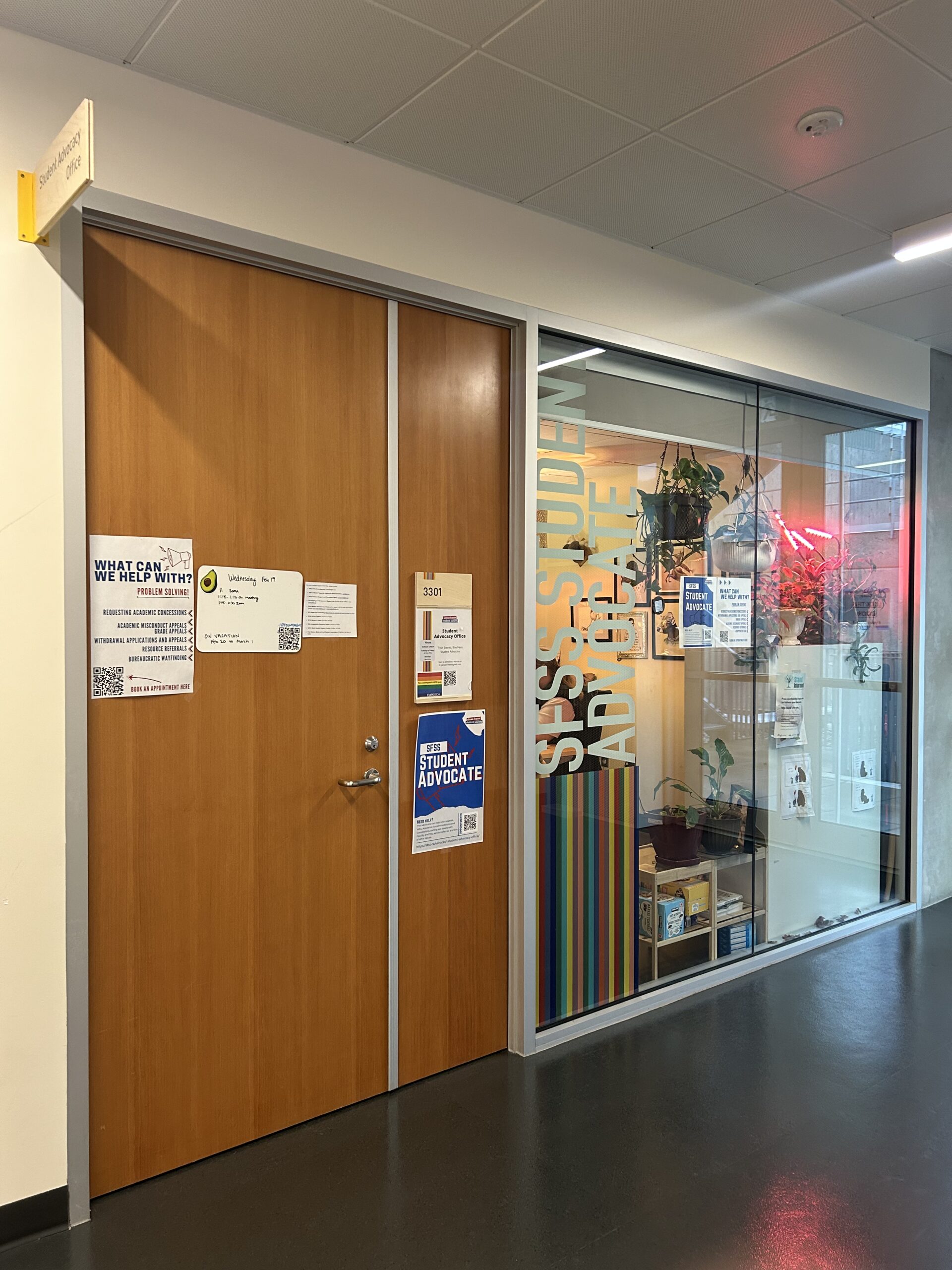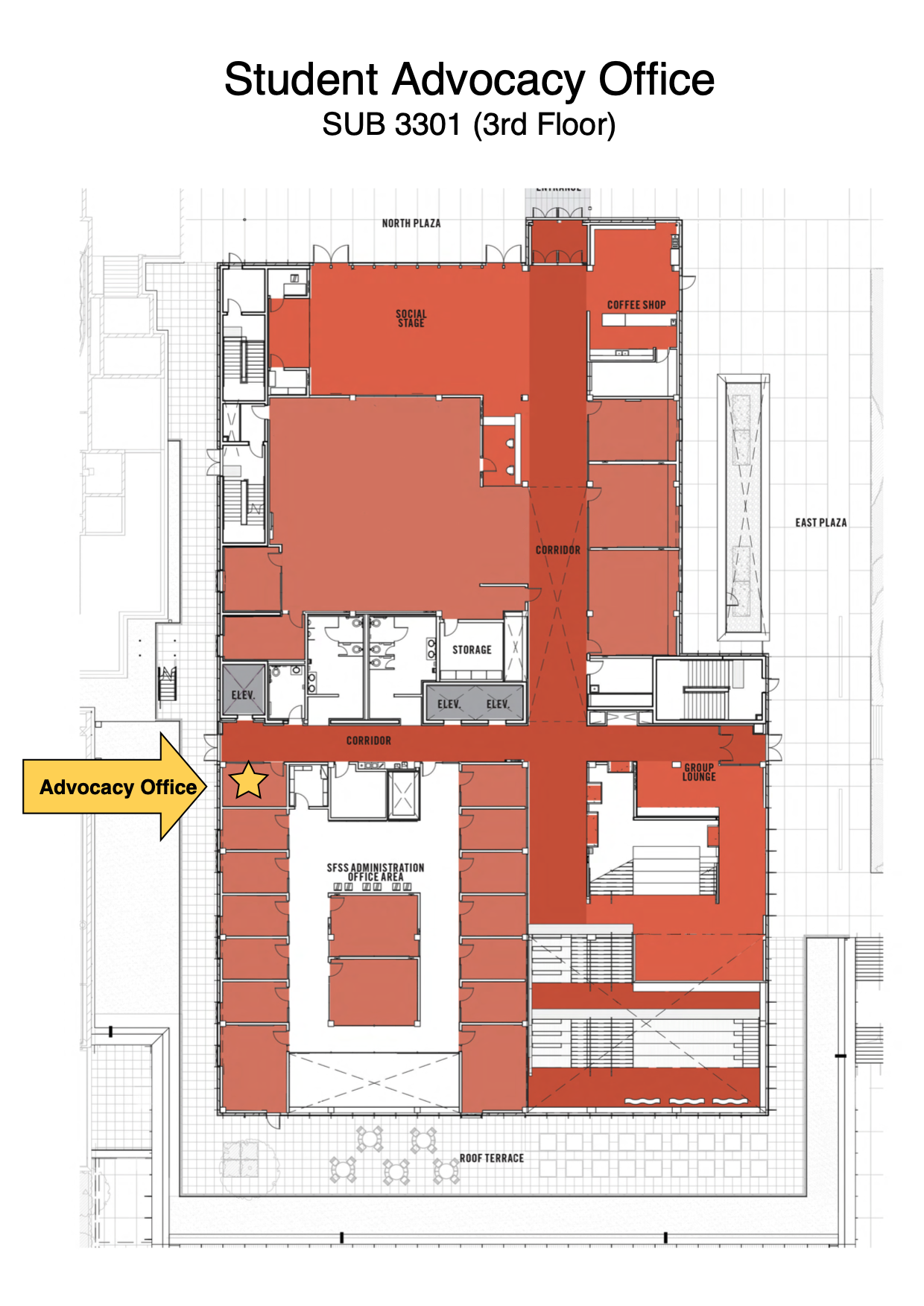How do I meet with the Advocate?
- Book an appointment in-person or remote
- Fill out this information form by clicking here
- Review the self-help tools in the menu at the bottom of this page
- Meet with the Student Advocate and come up with a plan
The Student Advocate provides resources and options, in a confidential manner, for students who need help. This may include help with navigating university policies and procedures, advice on how to deal with tricky situations, help you plan an academic or conduct appeal, serve as a support person in difficult situations, provide referrals to specialized support services, or help get a new project off the ground. The goals are to amplify the voices of students by advocating on their behalf, improve undergraduates’ overall university experience and work to make SFU a safer and more respectful space for all students, faculty, and staff.
You are welcome to book a one-on-one session with her or if you prefer, we have compiled self-help and how-to guides on the most common issues students face below.
COVID 19
Centre for Accessible Learning
Illness Forms
Counseling and Mental Health Support

(Include, but are not limited to)
The SFSS Advocacy Office is run by the Simon Fraser Student Society (SFSS). The SFSS is a not-for-profit organization that represents all Undergraduate Students at the Simon Fraser University (SFU). The SFSS provides members with a broad range of advocacy work, services, and events. The vision of the SFSS is students thriving everywhere and this is realized through our support of students to reach their full potential by providing resources and services that represent, connect and benefit our membership. Because we are funded by students, for students, we are not obliged to remain neutral which opens options for how we can support students.
To learn more, see sfss.ca.
Please note, the Student Advocate is NOT a lawyer, so if you need LEGAL help, please see:

Student Union Building
Room 3301,
(3rd floor, via corridor past elevators)
8888 University High St, Burnaby, BC V5A
Monday (remote), Thursday to Friday (SUB) 10:30am to 5:30pm
Email: advocate@sfss.ca
We respectfully and gratefully acknowledge that we are located on the ancestral, unceded territories of the Coast Salish peoples, including the xʷməθkʷəy̓əm (Musqueam), Sḵwx̱wú7mesh Úxwumixw (Squamish), Sel̓íl̓witulh (Tsleil-Waututh), kʷikʷəƛ̓əm (Kwikwetlem) and q̓icə̓y̓ (Katzie) Nations. Unceded means that these territories have never been handed over, sold, or given up by these nations, and we are currently situated on occupied territories. To learn more about Indigenous territories, please visit native-land.ca.